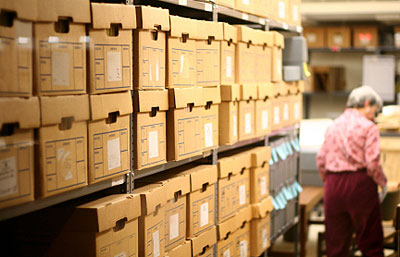As lawyers who read this blog are aware, there is an exception to the hearsay rule under Rule 803(6) of the Federal Rules of Evidence (FRE) or a state corollary called the business records exception. This allows in documents into substantive evidence with only the custodian of records or other qualified witness being present to authenticate the records.

All too frequently prosecutors try to use this exception for police documents such as calibration check records for breath test instruments and the like.
Without a doubt it can be objectionable under lack of personal knowledge and under the Confrontation Clause (remembering the primary purpose rule). A good criminal defense attorney should lodge three separate and distinct objections: (1) lack of personal knowledge, (2) violation of Confrontation Clause, and (3) these records are not business records.
Here is why these types of records are not a business record…
Simply ask the custodian of records what commercial business they (the police) are in?
The clear answer is “None.”

The business records exception grew historically from the historical “shopkeeper’s rule” (alternatively historically called the “shop-book rule” or the “shop-book-account rule”) that existed in English common law that excused ledger entries (from either a party or from a third party) that were made in the regular routine of commercial business. It was permissible hearsay. This exception existed pre-Constitution. So, it was firmly in place at the time of the founding.
Authority:
- The rule had its true origin in early 16th century English common law. An Illustrated Treatise on the Law of Evidence by Thomas Welburn Hughes in Section 3
- The rule became formalized in an English statute that was passed on 1609. 7 Jac. I., ch. 12
- By the latter part of the 17th century the shop-book-account rule was firmly in place. Puttman v. Maddox, 1 Lord Raymond, 732; Price v. Torrington, 2 Lord Raymond, 873
- An Illustrated Treatise on the Law of Evidence by Thomas Welburn Hughes in Section 5 wrote “[T]he English statute of 1609 or a similar one was in force in the Colonies; but account-book entries were not repudiated as in England.”
- An Illustrated Treatise on the Law of Evidence by Thomas Welburn Hughes in Section 12 wrote “According to the strict rule which originally obtained and which is still recognized in many jurisdictions, the entries must relate to goods sold or services performed.”
- Also, the second derivation of the rule came to be involving non-parties to the suit in the landmark case of Price v. Lord Torrington in 1703. 2 Lord Raymond, 873.
If the record is generated in anticipation of litigation (regardless if it is now, just that it is anticipated), it can never be a business record. Never, ever.
In the case of Palmer v. Hoffman, 318 U.S. 109 (1943), the Supreme Court of the United States ruled that an accident report created by a railroad company which was prepared in anticipation of a lawsuit by the victim was inadmissible, because it was not prepared in the regular course of its commercial business. Railroad travel, and not litigation, was the primary business of the railroad, and therefore the report was not considered sufficiently reliable to be admitted into evidence.


